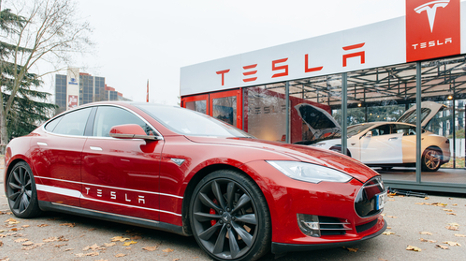Tesla challenges 2014 ruling; applies for Michigan dealer license

It was reported Friday that Tesla Motors Inc. has applied for licenses to sell and service its EV vehicles in Michigan.
By subscribing, you agree to receive communications from Auto Remarketing and our partners in accordance with our Privacy Policy. We may share your information with select partners and sponsors who may contact you about their products and services. You may unsubscribe at any time.
DETROIT –
Although the industry is still in deep debate regarding the direct distribution model — and despite Gov. Rick Snyder signing legislation in 2014 that bans the automaker's direct-to-consumer sales model — it was reported Friday that Tesla Motors Inc. has applied for licenses to sell and service its EV vehicles in Michigan.
A report from The Detroit News stated California-based Tesla Motors first submitted applications for a “Class A” dealership license in November, and has recently followed up to the initial request with more information.
The “Class A” dealership license would allow the automaker to sell new and used cars in the state, but under the classification, Tesla must also have a repair facility as part of the business, or the automaker has the option to establish a relationship with a licensed repair facility.
Responding to a comment request from Auto Remarketing, a Tesla spokesperson said, "Tesla is committed to being able to serve its customers in Michigan and is working with the legislature to accomplish that. The existing law in Michigan is very harmful to consumers. Tesla will take all appropriate steps to fix this broken situation."
According to a quote gathered by The Detroit News’ Michael Wayland, Michigan Secretary of State spokesman Fred Woodham said the department is reviewing the applications and a decision is expected “in the next month or two.”
According to The Detroit News report, if the Secretary of State gives the license request a green light, Tesla could potentially being selling and buying their vehicles in the state.
Subscribe to Auto Remarketing to stay informed and stay ahead.
By subscribing, you agree to receive communications from Auto Remarketing and our partners in accordance with our Privacy Policy. We may share your information with select partners and sponsors who may contact you about their products and services. You may unsubscribe at any time.
But if it’s denied, it might not be the end of the road for Tesla in Michigan; the industry has become familiar with the automaker’s lawsuits popping up in states that seek to ban its direct-sales model.
And more details could be on the way, as Tesla Motors is set to release its fourth-quarter and 2015 earnings on Feb. 10.
Michigan Information & Research Service Inc. was the first to report the Tesla applications last Friday, and the new service said that based on the application, in general, Tesla would be able to contract with anyone to sell its cars — save one, the automaker itself.
Consequently, the direct distribution debate isn’t expected to wind down anytime soon.
In fact, that's just what industry experts were debating during the Federal Trade Commission’s Auto Regulation Workshop held in mid-January in Washington D.C., during a panel discussion, titled, “Auto Distribution: Current Issues & Future Trends."
Todd Maron, general counsel at Tesla Motors, participated in the panel and focused on how Tesla differs. from other huge, franchised-dealer driven automakers. Maron also encouraged listeners to think about the way new technology catches on and is distributed.
“It makes sense when new technology comes out, consumers don’t come to it, we bring the new technology to the consumer,” Maron said as fodder to support the direct distribution argument. “That’s a standard, well accepted thing … you have to make it convenient for them for them to accept it.”
Interestingly, although Tesla has made no moves to back down on its fight for the right to distribute vehicles directly to consumers, some recent actions show that the automaker is warming to some of the elements of a franchised dealerships.
Selling used and CPO vehicles for example, and taking advantage of customer trade-ins. The automaker officially launched its CPO program back in April 2015, and this past September, Tesla opened a new store and service center in South California for both new and pre-owned Tesla Model S vehicles.
As for what’s next for the company in Michigan, we will just have to wait and see, but the automaker certainly hasn’t pulled out of the state completely after Gov. Rick Snyder’s 2014 ruling on its direct distribution model.
In fact, Tesla bought Riviera Tool LLC, located in Cascade Township, Mich., which the automaker renamed the Tesla Tool and Die Factory.
And according to the Tesla website, Tesla lovers in Detroit should expect a service center in its state, which the automaker said is “coming soon.”
As for whether Tesla will win the battle in support of direct distribution soon, analysts say it’s not likely.
“The direct-to-consumer model for car sales still seems a long ways out, if ever. What’s more likely is increasing use of the one-price, no-haggle model, along with more flexible and convenient retailing options that tie into online/mobile tool sets,” said Karl Brauer, senior analyst at Kelley Blue Book


